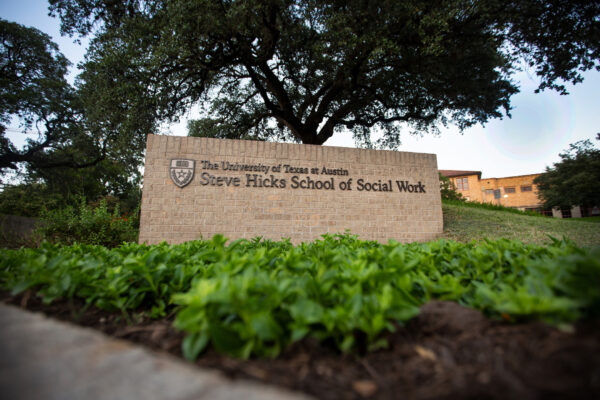AUSTIN, Texas — A new program in the Steve Hicks School of Social Work at The University of Texas at Austin will work to increase access to addiction recovery housing needed after long-term recovery care. Limited access to safe and stable housing is one of the barriers to recovery, and at least 1 out of 3 people entering treatment experience housing instability. The Addiction Research Institute will bring together a consortium of experts across The University of Texas System to develop innovative recovery housing funding models and sustainable systems policies that will help keep more recovery housing businesses in operation, increasing the availability for those in need. Numerous research studies have documented that recovery housing facilitates positive outcomes for residents through substance use recovery, decreased criminal justice involvement, and higher employment.
Substance use disorders are chronic conditions that require intensive interventions and long-term care, but most insurance-covered treatments are time-limited, leaving individuals without means to fund continued recovery housing. “Our institute focuses on creating real-world social impact to reduce the negative consequences of addiction and substance use on individuals, families and communities,” said Fiona Conway, associate director of research for the Addiction Research Institute. “We will bring our scientific and community expertise to develop an innovative solution to change the landscape of recovery housing and make it more accessible.” The two-year project will address the financial gap created by insurance coverage ineligibility and structural barriers to recovery. The empirical research will inform new policy initiatives that advocate for recovery housing organizations’ insurance coverage eligibility.
Examples of recovery housing include recovery homes, sober living homes, and Oxford Houses. This type of housing addresses this critical need by providing supportive living environments for people in recovery. Housing costs in recovery residences are not presently covered by private or public health insurance, and there are also barriers to individuals without insurance who need recovery housing. Lack of insurance coverage may also threaten the ability of providers to offer quality and sustainable recovery housing.
The research is supported by a new grant from The FIRST Fund, managed by the Austin Community Foundation and in partnership with the CLEAN Cause Foundation.
“The CLEAN Cause Foundation is focused on bridging the critical gap between addiction and early recovery by funding recovery housing initiatives that promote best practices, further research, and impact systems change. This grant will help CLEAN Cause Foundation and the Addiction Research Institute essentially save lives,” said Julie McElrath, president of the CLEAN Cause Foundation. “Research has indicated that individuals in early recovery who have high-quality and supportive living environments significantly increase their ability to stay healthy and well.”




